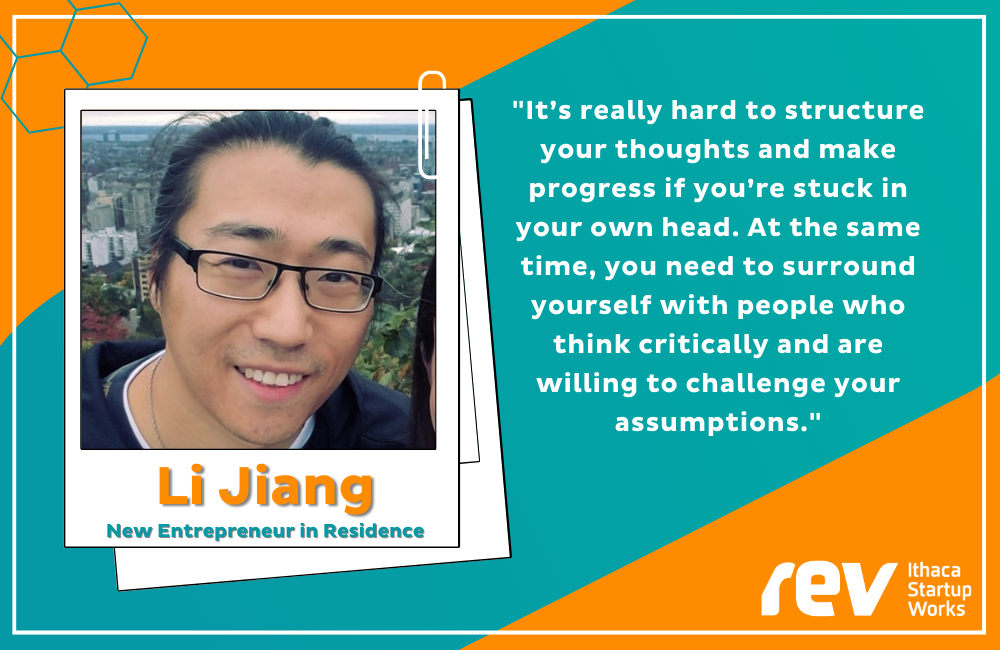
Entrepreneurs in Residence (EIRs) offer invaluable mentorship and business insight for Rev: Ithaca Startup Works member companies. One of our newest EIRs, Li Jiang, combines his expertise as a biotech entrepreneur and firsthand insight into the customer discovery and product-market fit processes to aid teams on their own entrepreneurial journeys.
Jiang serves as CEO of VitaScan, a nutrition and wellness testing startup that specializes in fingerstick diagnostic tools, allowing professionals to test patients right in their office rather than having to send them to a lab. Not only does this streamline the testing process, but it also allows for more personalized nutrition guidance. VitaScan’s first product, IronScan, produces quick and accurate readings to identify iron deficiency. Jiang, who earned his Ph.D. in mechanical engineering from Cornell in 2014, has successfully secured over $3 million in grants and investment for the startup.
We recently spoke with Jiang about his entrepreneurial experience and how he plans to contribute to the business incubator as an EIR.
Question 1: Why do you think Ithaca, N.Y. is such a great place to launch a startup? What challenges are present, and how do you combat them?
The financial costs in a startup’s early days are much lower in Ithaca than many other startup hubs, and if it’s a spinout from a local school, especially if it’s tech-related, there’s likely a great opportunity to leverage university research to add value to the startup’s efforts. It seems that Ithaca and the Southern Tier region is particularly strong in agriculture and energy, so I suspect those startups have significant resources.
When a startup needs to grow, though, I’ve experienced two main challenges here. One is sourcing young, talented people to the area, especially if you need very specific skills but can’t offer a high salary and good benefits. The second is networking, especially if the people you need to connect with are in a very specific industry. This has gotten easier post-COVID, now that virtual meetings have become the norm, but you also need to develop different tactics to connect with them.
Question 2: What would you consider your area of expertise, and how will it benefit Rev members?
I think the most value I can bring to Rev members is coaching them on the customer discovery and product-market fit process. I’ve taken several I-Corps and similar courses over the years and have combined what I learned there with elements of the “Sandler Sales Method” to get more honest feedback from customer interviews. I’m also actively doing product-market fit for my startup (it never ends!), so I have a “live” perspective on this when working with Rev teams.
In terms of technical area of expertise, I got my Ph.D. in mechanical engineering with a minor in biomedical engineering from Cornell and have co-founded three startups in the medical devices space. Deep tech and specifically biotech are where I feel most comfortable and have the most relevant network.
Question 3: What advice learned during your own experience of entrepreneurship is essential for startups to know?
Having the right team. It’s really hard to structure your thoughts and make progress if you’re stuck in your own head. At the same time, you need to surround yourself with people who think critically and are willing to challenge your assumptions. A team of “enablers” is just as bad as a team of one.
Thank you to Li Jiang for providing mentorship as an EIR. We are thrilled to have him on the team!
